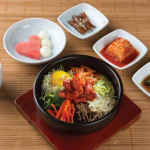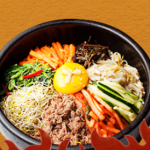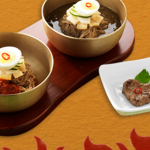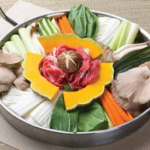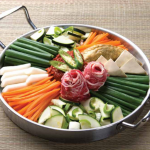As the world becomes increasingly interconnected, cultures intertwine and bring about a delightful fusion of traditions and customs. Food is one such aspect that showcases the harmony of diverse cultures. Korean cuisine, with its vibrant flavors and unique cooking techniques, has gained tremendous popularity across the globe. However, for some Muslim individuals, dietary restrictions based on their faith may pose questions about whether they can indulge in Korean dishes without compromising their religious beliefs. In this article, we dive into the world of Korean cuisine to explore which dishes are generally suitable for Muslims, making it easier for them to enjoy this delectable cuisine.
Introduction to Korean Cuisine
Korean cuisine is renowned for its rich flavors, use of fermented ingredients, and meticulous preparation techniques. Rice, noodles, vegetables, and meat play central roles in Korean dishes, resulting in a diverse range of flavors and textures. Popular Korean dishes such as bibimbap, bulgogi, kimchi, and tteokbokki have conquered the palates of many food enthusiasts around the world.
Muslim-Friendly Ingredients in Korean Cooking
To determine whether Korean dishes are suitable for Muslims, one must examine the ingredients used in Korean cooking. Traditional Korean cuisine leans heavily toward vegetables and rice, making it a promising choice for Muslim individuals seeking halal options. Furthermore, Korean cuisine often utilizes meat sources such as chicken and beef, which are generally permissible for Muslims. However, one must exercise caution with pork-based dishes, as pork is strictly prohibited in Islamic dietary guidelines.
The Role of Alcohol in Korean Cuisine
One aspect that requires attention when considering Korean cuisine for Muslim consumption is the inclusion of alcohol in certain dishes. While alcohol is commonly used in Korean cooking to enhance flavors and marinate meat, the cooking process typically leads to the evaporation of alcohol, leaving only the essence behind. Therefore, dishes that contain alcohol, such as some stews or marinades, can often be considered acceptable for Muslim individuals since the alcohol evaporates during cooking.
Vegetarian and Seafood Options
For those who prefer a vegetarian diet or simply want to explore alternative options, Korean cuisine offers a plethora of dishes to satisfy their palate. From savory pancakes filled with vegetables to tangy vegetable-based stews, there are numerous vegetarian options available. Additionally, seafood dishes are widely consumed in Korean cuisine, making it a delightful choice for individuals who follow pescatarian diets.
Navigating Korean Restaurants as a Muslim
When dining out at Korean restaurants, it is important for Muslims to exercise caution and inquire about the ingredients used in specific dishes. While some establishments may be knowledgeable about halal guidelines, others may be unfamiliar with the dietary restrictions of Muslims. It is crucial for Muslims to communicate their dietary requirements clearly to ensure that the food they consume aligns with their faith.
Conclusion
Korean cuisine offers a myriad of mouthwatering dishes that can be enjoyed by Muslim individuals while adhering to their dietary restrictions. With the abundant use of vegetables, rice, and permissible meat sources, Muslims can look forward to savoring the incredible flavors and textures of Korean cooking. By making informed choices and engaging in effective communication with restaurant staff, Muslims can confidently explore and embrace the world of Korean cuisine without compromising their religious beliefs.
FAQ
- Are all Korean dishes suitable for Muslims?
-
While many Korean dishes can be enjoyed by Muslims, it is important to inquire about specific ingredients, particularly regarding the use of pork and alcohol.
-
Can Muslims consume dishes that contain alcohol?
-
In general, dishes that contain alcohol in Korean cuisine can be considered permissible for Muslims as the alcohol evaporates during the cooking process.
-
What are some vegetarian options in Korean cuisine?
-
Korean cuisine offers a wide range of vegetarian dishes such as vegetable pancakes, vegetable stews, and tofu-based dishes.
-
Are seafood dishes suitable for Muslims?
-
Yes, seafood dishes are generally permissible for Muslims, making them a great choice for individuals following pescatarian diets.
-
How can Muslims ensure their dietary restrictions are met at Korean restaurants?
- Muslims should communicate their dietary requirements clearly to the restaurant staff and inquire about the ingredients used in specific dishes to ensure they align with Islamic dietary guidelines.

